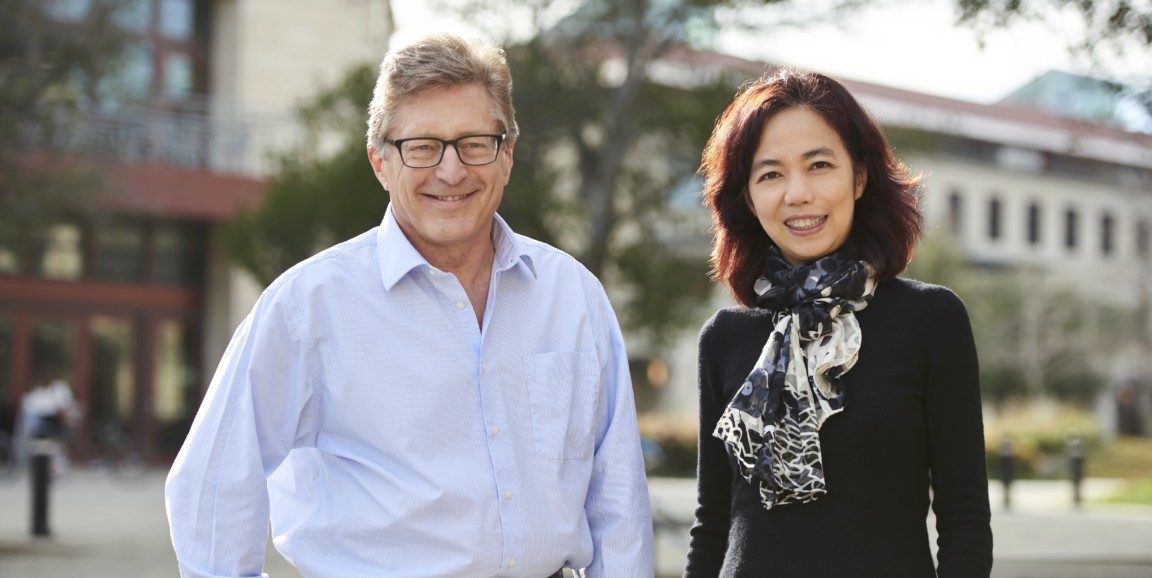Stanford today launched the new Institute for Human-Centered Artificial Intelligence, known as HAI. Its aim is to study, guide and develop human-centered artificial intelligence technologies and applications and advance the goal of a better future for humanity through AI, according to a university announcement.
Its co-leaders will be John Etchemendy, PhD, and Fei-Fei Li, PhD, shown in the image above.
Li, a professor of computer science, explained in a blog post:
So much of the discussion about AI is focused narrowly around engineering and algorithms... We need a broader discussion: something deeper, something linked to our collective future. And even more importantly, that broader discussion and mindset will bring us a much more human-centered technology to make life better for everyone.
The institute, which was launched at a symposium on campus, will include faculty members from all seven schools at Stanford -- including the School of Medicine -- and will work closely with companies in a variety of sectors, including health care, and with organizations such as AI4All.
"Its biggest role will be to reach out to the global AI community, including universities, companies, governments and civil society to help forecast and address issues that arise as this technology is rolled out," said Etchemendy, professor of philosophy and a former Stanford University provost, in the announcement. "We do not believe we have answers to the many difficult questions raised by AI, but we are committed to convening the key stakeholders in an informed, fact-based quest to find those answers."
A video provides a closer look:
"This new era will bring us closer to our shared dream of creating a better future for all of humanity," Li said in the video. "It will also bring opportunities and challenges that we cannot yet foresee."
Photo by Drew Kelly for Stanford Institute for Human-Centered Artificial Intelligence




